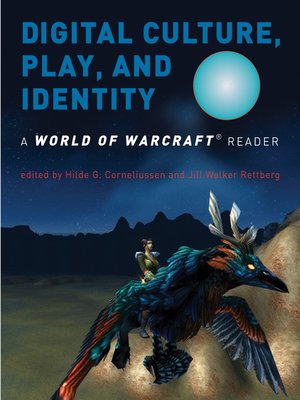
Sign up to save your library
With an OverDrive account, you can save your favorite libraries for at-a-glance information about availability. Find out more about OverDrive accounts.
Find this title in Libby, the library reading app by OverDrive.



Search for a digital library with this title
Title found at these libraries:
| Library Name | Distance |
|---|---|
| Loading... |
World of Warcraft is the world's most popular massively multiplayer online game (MMOG), with (as of March 2007) more than eight million active subscribers across Europe, North America, Asia, and Australia, who play the game an astonishing average of twenty hours a week. This book examines the complexity of World of Warcraft from a variety of perspectives, exploring the cultural and social implications of the proliferation of ever more complex digital gameworlds. The contributors have immersed themselves in the World of Warcraft universe, spending hundreds of hours as players (leading guilds and raids, exploring moneymaking possibilities in the in-game auction house, playing different factions, races, and classes), conducting interviews, and studying the game design — as created by Blizzard Entertainment, the game's developer, and as modified by player-created user interfaces. The analyses they offer are based on both the firsthand experience of being a resident of Azeroth and the data they have gathered and interpreted. The contributors examine the ways that gameworlds reflect the real world — exploring such topics as World of Warcraft as a "capitalist fairytale" and the game's construction of gender; the cohesiveness of the gameworld in terms of geography, mythology, narrative, and the treatment of death as a temporary state; aspects of play, including "deviant strategies" perhaps not in line with the intentions of the designers; and character — both players' identification with their characters and the game's culture of naming characters. The varied perspectives of the contributors — who come from such fields as game studies, textual analysis, gender studies, and postcolonial studies — reflect the breadth and vitality of current interest in MMOGs.







